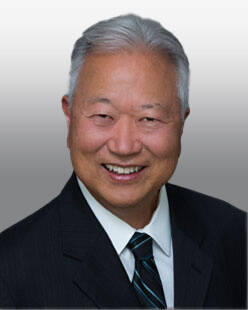
Case Manager: Haward Cho
Los Angeles Superior Court, Judge 2010-2022
Judge Suzuki served as a Judge of the Superior Court for 12 years. He was last assigned to Long Cause Probate Trials in Department 3 at Stanley Mosk Courthouse, handling complex probate trials lasting five or more days.
Judge Suzuki has extensive experience presiding over trials involving various petitions for will contests, trust disputes, interpretation of testamentary documents, breach of fiduciary duty, removal of estate representative and/or trustee, appointment of private professional fiduciaries, accounting and surcharges, reformation of trusts, determination of heirs and beneficiaries, Probate 850 petitions, mental capacity issues, undue influence claims, financial elder abuse, restraining orders, conservatorship of persons and/or estates, guardianships, real property claims, enforcement of settlement agreements, spousal petitions, and court-ordered related civil disputes of quiet title, unlawful detainer, fraud, etc. to be tried with probate cases.
During his tenure, Judge Suzuki also served on court committees for Superior Court Commissioner Selection, Arbitration/Alternative Dispute Resolution, Bench and Bar, Diversity, Community Outreach, Security, Traffic, and Litigation.
Los Angeles Superior Court, Commissioner 2006-2010
Judge Suzuki began his judicial career as a Superior Court Commissioner, handling misdemeanor criminal jury trials and issuing emergency protective orders for domestic violence.
Law Offices of Suzuki & Ito 1978-2005
Prior to his appointment to the bench, Judge Suzuki served as Managing Partner of a boutique law firm and maintained a general civil litigation practice, representing private individual, business, and institutional clients primarily in the areas of business, real property, real estate broker litigation, plaintiff and defense personal injury, and medical malpractice litigation. In addition, he represented public sector clients such as the Metropolitan Transportation Agency, Resolution Trust Corporation, Community Redevelopment Agency, Los Angeles Unified School District, and served on a Los Angeles City conflict panel involving Los Angeles police officers. Judge Suzuki has conducted numerous jury and non-jury trials and has argued successfully twice before the California Supreme Court.
Legal Aid Foundations of Long Beach and Riverside 1975-1978
Upon obtaining his J.D. from UCLA School of Law, Judge Suzuki began his legal career working as a poverty law lawyer, providing legal services to indigent persons.
Asian Business Association 1984-2000
Judge Suzuki is a native of Los Angeles, having been born in East Los Angeles and raised in South Central Los Angeles. During World War II, his parents were incarcerated in an internment camp in Wyoming. After leaving the camp, the family moved back to Los Angeles and opened a dry cleaner business in South Central, which also served as the family home. After opening his own law firm, Judge Suzuki joined the Asian Business Association in 1984 and was a member of the Board of Directors for 13 years, serving as President in 1992 and Chairperson of the Corporate Advisory Committee in 1993. The Asian Business Association worked with major public corporations and government entities to create strategic business relationships for Asian-owned businesses throughout Southern California.
During the Los Angeles Civil Unrest of 1992, Judge Suzuki worked tirelessly to organize forums between the Black Business Association and Asian Business Association, known as Unity Meetings, to improve relations between the two ethnic business communities. The annual Unity Forum eventually expanded to include the Latin Business Association and women business owners groups.
Federal Judicial Advisory Committee 1997-1999
Member of 10-person U.S. State Senator Committee to assist in selecting Federal District Court Judges.
City of Los Angeles, Salary Review Commission 1982
Appointed by Chairperson of the Los Angeles City Council to review and make recommendations regarding the salary of the Mayor of Los Angeles, City Council, and City Attorney.
Optimist International, Secretary 1979-1981
Boy Scouts, Troop 764, Assistant Scout Master
Judge Suzuki was a member of the Los Angeles Trial Lawyers Association from 1982 to 1986, and was a member of the Southern California Defense Attorneys Association from 1988 to 1993. In addition, he was a member of the Los Angeles County Bar Association from 1984 to 2006. He was a Licensed California Real Estate Broker (1980).
“I appreciated Judge Suzuki’s concentrated focus on listening. In trust litigation, it’s important to figure out what’s really driving the anger, and you’d be surprised how often that can really make a big difference. Judge Suzuki just sort of soaked in everything my client and I had to say, and I like that. What you don’t want is a mediator who starts out forming an opinion of the case. He didn’t do that. He just listened carefully to what we had to say, asked questions that were relevant and then went over the other side and did the same thing.”
“Judge Suzuki is terrifically thoughtful and an especially effective communicator. He just demonstrated a great deal of care and compassion, and my client really liked him. He had a good picture overall of what was in the proposed conservatee’s best interest and in the best interest for the family, and that’s definitely what he was advocating for, which my client really appreciated.”
“Judge Suzuki is excellent with clients. In mediations, it’s not just the other side but your own clients that you have to get to be realistic about the case, and they often aren’t. You have to sort of gradually get them there, and Judge Suzuki was excellent at that. He really did a good job of keeping parties away from ultimatums and unrealistic thinking.”
